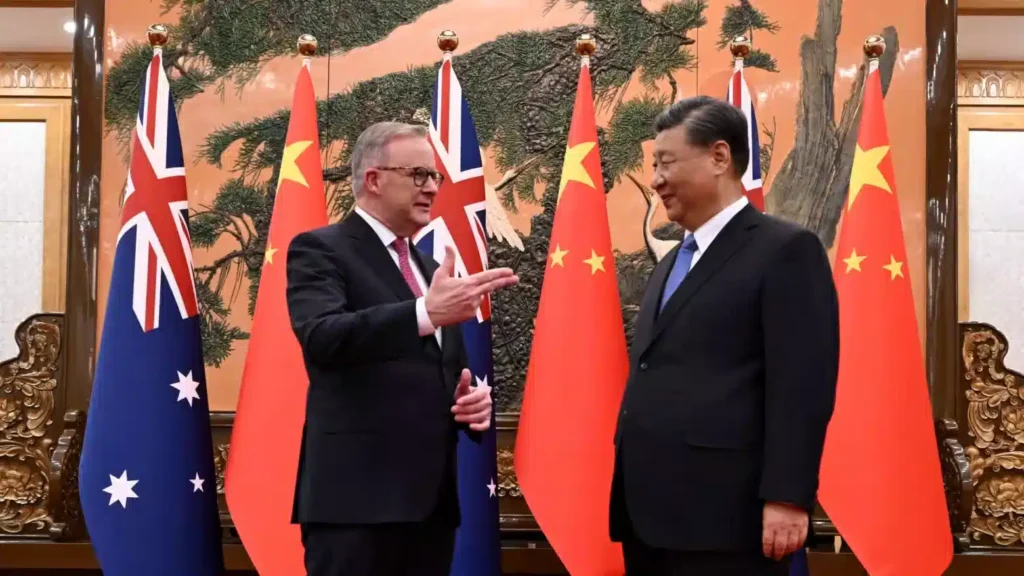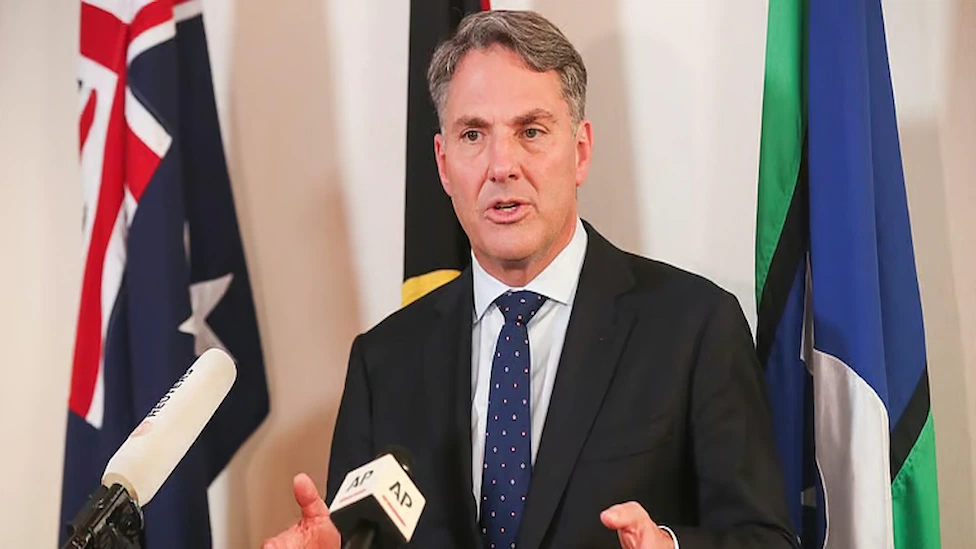Australia China Trade Dispute: Australia refused China’s offer to oppose US tariffs on Thursday jointly. Deputy PM Richard Marles said Australia will diversify trade instead. The decision aims to reduce reliance on China, its top trade partner. China’s ambassador urged cooperation to defend global trade rules.
Meanwhile, US tariffs on China rose to 125%, worsening trade tensions. Australia fears economic risks as 30% of its exports go to China.
Also Read | Trump China Tariffs Impact: Global Markets Plunge as Trade War Escalates
Australia China Trade Dispute: Insights
- Australia prioritizes trade diversification over aligning with China.
- US-China trade war escalates with higher tariffs.
- Australia strengthens ties with the EU, India, and the Middle East.
- China pushes for joint action to protect global trade.
- Experts warn US tariffs may hurt Australian exports.
Background
The US-China trade war has disrupted global markets for years. Recently, US tariffs on China jumped from 104% to 125%. Australia, heavily dependent on Chinese trade, faces risks. Earlier, the US also imposed a 10% tariff on Australia. Despite being a US ally, Australia avoids retaliation. Instead, it seeks new trade partners to boost economic resilience.
Main Event
Australia rejected China’s call to team up against US tariffs. Deputy PM Marles stated Australia will not take sides. He emphasized trade diversification with the EU, India, and others. China’s ambassador, Xiao Qian, urged joint efforts to defend global trade rules.
The US recently hiked tariffs on Chinese goods to 125%. This move escalates tensions between the world’s top economies. Australia, sending 30% of exports to China, faces potential fallout.
The US also imposed a 10% tariff on Australia. PM Albanese called it illogical but ruled out retaliation. Australia’s central bank warned trade uncertainties may hurt investments and spending.

Deputy PM Richard Marles announces Australia’s decision to reject China’s trade alliance proposal amid rising US tariffs.
Photo Credits: REUTERS.
Also Read | China US Tariff War Escalates as Beijing Vows Strong Retaliation
Implications
The Australia China trade dispute affects multiple sectors. Businesses may face higher costs due to shifting trade ties. Exporters relying on China could suffer losses. The government aims to stabilize the economy by expanding trade networks. Global markets may see further instability if US-China tensions grow.
Conclusion
Australia’s refusal to join China highlights its focus on independent trade policies. Experts suggest further diversification to reduce risks. The Australia China trade dispute could reshape regional trade dynamics. The world watches as US-China tensions impact global supply chains.



